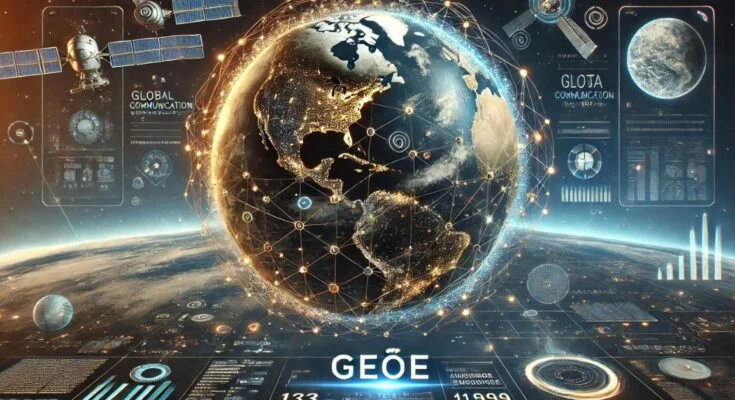In an increasingly interconnected world, the dynamics of global power are shifting. No longer defined solely by military might or political influence, the balance of power today is increasingly influenced by geoeconomics—the intersection of economics, geography, and politics. As nations navigate this evolving landscape, the strategic use of economic tools to achieve geopolitical objectives has become more pronounced, raising significant questions about the future of global stability.
Defining Geoeconomics
Geoeconomics is a term that has gained prominence in recent decades, reflecting the growing importance of economic strategies in international relations. It encompasses the use of economic instruments, such as trade policies, investment strategies, and financial leverage, to achieve geopolitical goals. Unlike traditional economic policy, which is primarily concerned with growth, employment, and inflation, geoeconomics is focused on the strategic distribution of power and influence.
This approach is not new, but its application has evolved in response to globalization, technological advancements, and shifting political alliances. The 21st century has seen a resurgence in the use of economic statecraft, with countries like the United States, China, and Russia employing geoeconomic strategies to project power and protect their national interests.
Key Instruments of Geoeconomics
The tools of geoeconomics are diverse and can be both offensive and defensive. Some of the most commonly used instruments include:
- Sanctions: Economic sanctions are perhaps the most visible form of geoeconomic strategy. By restricting trade, investment, and financial transactions, sanctions aim to coerce or punish other states without resorting to military conflict. The United States, in particular, has used sanctions extensively, targeting countries like Iran, North Korea, and Russia.
- Trade Policy: Tariffs, trade agreements, and export controls are powerful tools in the geoeconomic arsenal. By controlling access to markets and resources, countries can influence the economic and political behavior of others. The U.S.-China trade war, which began in 2018, is a prime example of trade policy being used to exert geopolitical pressure.
- Investment and Infrastructure: Investment in foreign infrastructure, such as China’s Belt and Road Initiative (BRI), represents another key aspect of geoeconomics. Through strategic investments in critical infrastructure projects across Asia, Africa, and Europe, China aims to expand its influence and create economic dependencies that can be leveraged for political gain.
- Currency Manipulation and Financial Power: The ability to control or influence global financial systems is another critical component of geoeconomics. Currency manipulation, control over international financial institutions, and the use of sovereign wealth funds are all strategies that can be used to gain economic and geopolitical advantages.
- Energy and Natural Resources: Control over energy resources and supply chains has long been a tool of geopolitical strategy. Countries like Russia have used their dominance in natural gas supplies to exert influence over Europe, while the U.S. has leveraged its oil production capabilities to counterbalance OPEC’s influence.
Implications for Global Stability
The rise of geoeconomics presents both opportunities and challenges for global stability. On the one hand, the use of economic tools offers an alternative to military conflict, allowing nations to pursue their objectives without resorting to violence. However, the increased reliance on economic coercion also carries risks, including the potential for unintended consequences and the escalation of conflicts.
One of the most significant risks associated with geoeconomics is the potential for economic interdependence to become a source of vulnerability. As countries become more interconnected, the impact of economic measures—such as sanctions or trade restrictions—can ripple across the global economy, affecting not only the targeted nation but also its trading partners and allies. This interconnectedness can amplify the effects of geoeconomic strategies, leading to broader instability.
Moreover, the use of economic tools as a means of coercion can undermine trust and cooperation among nations. When countries use trade, investment, or financial leverage to achieve geopolitical goals, they risk damaging long-standing economic relationships and creating an environment of suspicion and competition. This erosion of trust can make it more difficult to address global challenges that require collective action, such as climate change, cyber threats, and pandemics.
Another concern is the potential for geoeconomic strategies to exacerbate existing inequalities. As powerful nations use their economic might to achieve strategic objectives, smaller and less developed countries may find themselves caught in the crossfire. The economic pressure exerted by larger states can weaken the sovereignty of smaller nations, forcing them to align with the interests of more powerful actors or face economic repercussions.
Conclusion
The growing importance of geoeconomics in global affairs reflects the changing nature of power in the 21st century. As nations continue to leverage economic tools to achieve geopolitical objectives, the implications for global stability are profound. While geoeconomics offers a means of pursuing national interests without resorting to military conflict, it also carries significant risks. The challenge for policymakers will be to navigate this complex landscape in a way that promotes stability, fosters cooperation, and mitigates the potential for unintended consequences.
In an era where economic power is increasingly intertwined with geopolitical strategy, understanding and managing the dynamics of geoeconomics will be essential for ensuring a stable and prosperous global order.
